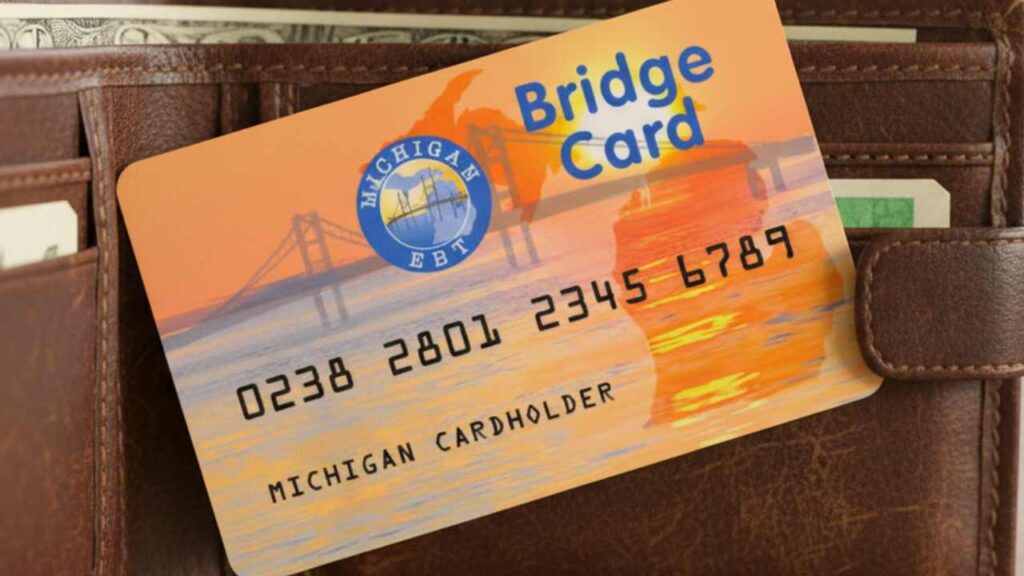The Michigan Department of Health and Human Services (MDHHS) confirmed Sunday the immediate release of full Supplemental Nutrition Assistance Program (SNAP) benefits for November, benefiting approximately 1.4 million households, representing 13% of the state’s families.
This action follows the denial of a federal appeal, which upheld a court order requiring the U.S. Department of Agriculture (USDA) to release the food stamps’ full funds, despite Washington’s appeal.
What Michiganians could expect about their SNAP benefits
The resolution stems from a legal process initiated by the federal government blackout, which has now lasted over 37 days and is the longest in U.S. history. The Department of Human Services (MDHHS) notified its EBT card provider to resume full payments.
Beneficiaries scheduled for the 9th of the month will receive their funds within the next 48 hours, while the rest will maintain their regular payment schedule.
The USDA notified states in late October of the temporary withholding of November payments due to the federal shutdown. On November 6, a federal judge in Rhode Island ordered full funding of the benefits, allowing initial full issuances in Michigan on the 3rd, 5th, and 7th.
The federal government’s immediate appeal led to a temporary Supreme Court injunction on November 8, which paused the remaining issuances and required the recovery of funds already distributed. The USDA then proposed covering only 65% of the maximum amounts, which increased demand at local food pantries by 30% to 50%.
On November 10, the First Circuit Court of Appeals rejected the injunction, allowing the full release of funds and the resumption of full payments in Michigan.
SNAP Payment Schedule in Michigan (November 2025)
SNAP payments are distributed based on the last digit of the beneficiary’s case number (not their Social Security number). With full restoration, the regular schedule remains in place, with adjustments for previous delays.
| Last Digit of Case Number | Regular Payment Date | November 2025 Notes |
|---|---|---|
| 0 | November 3 | Issued full on November 3 |
| 1 | November 4 | Issued full on November 4 |
| 2 | November 5 | Issued full on November 5 |
| 3 | November 6 | Issued full on November 6 |
| 4 | November 7 | Issued full on November 7 |
| 5 | November 8 | Paused; full issuance within 48 hours from November 10 |
| 6 | November 9 | Paused; full issuance within 48 hours from November 10 |
| 7 | November 10 | Paused; full issuance within 48 hours from November 10 |
| 8 | November 11 | Issued full on November 11 |
| 9 | November 12 | Issued full on November 12 |
Payments are loaded onto EBT cards and can be used at more than 9,700 retailers across the state, including supermarkets and farmers markets. The average amount per household in Michigan is $335 per month, equivalent to about $5.68 per person per day, adjusted for the 25% increase in food costs since 2020.
Payments may be delayed due to the government shutdown, so the original payment dates may have changed. You should contact your SNAP office to find out when your money will actually arrive.
Maximum Approved SNAP Amounts in Michigan (October 2025 – September 2026)
The maximum monthly amounts were updated on October 1, 2025, with a 2.5% cost-of-living adjustment (COLA), incorporating an increase of $19 for a four-person household. These are the values for households with no net income (they receive the full maximum); the actual amounts are calculated by subtracting 30% of net income from the maximum.
| Household Size | Maximum Monthly Benefit ($) |
|---|---|
| 1 | 298 |
| 2 | 552 |
| 3 | 788 |
| 4 | 994 |
| 5 | 1,175 |
| 6 | 1,410 |
| 7 | 1,645 |
| 8 | 1,880 |
| Each additional person | +235 |
The minimum income for households of 1-2 people is $24 per month. There is no asset limit in Michigan, and the gross income limit is 200% of the federal poverty level (for example, $5,358 per month for a household of four).
Complementary State Measures
The state has extended the Double Up Food Bucks program through December 31, doubling SNAP dollars for fruits and vegetables. In addition, $4.5 million was allocated to food banks, and the Senate approved $71 million in emergency funding to mitigate future disruptions, including support for rural food pantries.
While the federal blackout continues due to budget disagreements in Congress, this restoration provides temporary stability for November. Experts warn of potential impacts in December without an agreement, yet the Congress is moving forward to unlock the progress.
